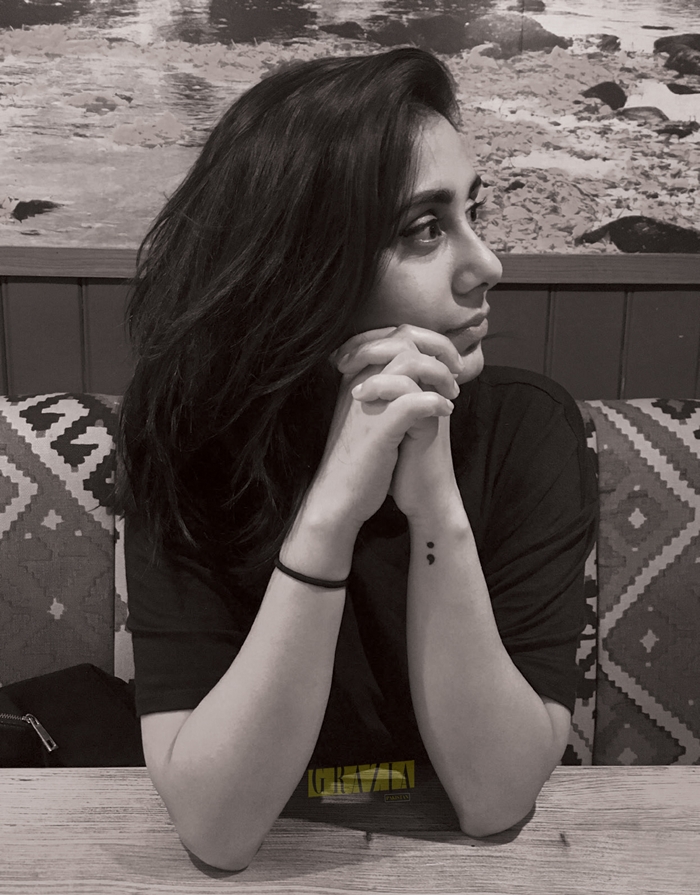When you break a bone, you rush to the hospital. You don't sit at home, hide it from the world and wait for it to heal on it's own. Then why should we treat mental health in that manner?
OUR SOCIETY seems to brush matters of mental health under the carpet. Families mostly choose to turn a blind eye towards a member who is suffering. Denial kicks in more easily than facing the reality.
We had the honour of discussing this matter with Adeela Badshah, a portrait/lifestyle photographer from Karachi who is now based in Nottingham, UK. She shared with us her journey of understanding that she was struggling with depression and how she found ways of tackling it. Here is her story:
I realised that something didn’t feel right, much before I accepted the fact that I do suffer from depression. I never gave it the attention it deserved because somewhere in my mind I still believed in the illusion that ‘it isn’t going to happen to me’.
I am an extremely self aware person and I assumed that I didn’t need counselling or external help because I was capable of analysing my own issues. But all I was really doing (through analysing) was identifying the problems, and not really finding solu-tions for them. I am still guilty of that, on occasion.

Growing up in a place like Karachi, it is easy to let your mind get clouded with thoughts of not being good enough. You aren’t good enough because you got a B+ instead of an A, because you’ve put on a few pounds around the waist, because you are slightly dark or because you wore sleeveless in front of an Aunty. In everyday situations you find that you are constantly comparing yourself to others or referring back to the age old comment ‘log kya kahein ge?’ (What will people say?)
I was lucky enough to have family that supported and encouraged me to be who I wanted to be, but I wasn’t bereft of external sources that made me feel like I didn’t fit in. Let’s face it, we are a
rather cynical/pessimistic bunch, and I’m no saint in the matter. As I grew older, I became my own worst critic, constantly replaying past mistakes or traumatic events. I made sure I was never good enough for my own self. Eventually even bruises can lead to complicated injuries if not cared for at the appropriate time.
I dabbled in meditation, therapy, exercise and various hobbies for a few years, yet nothing seemed to get me out of this state of mind because, in truth, I hadn’t accepted it internally as yet. I was still wary about talking to my family and friends about it. I kept telling myself that I was just having a ‘bad day’, or blamed my mood on an external source. I had a storage room of excuses that didn’t seem to run out. Eventually they did, and I became tired of feeling unhappy. It took me a long while after this point to accept that I suffer from depression. I came to realise that the only person who can make a difference is me, so I decided to wait for motivation to kick in. It still hasn’t kicked in.
Motivation and inspiration more often than not barely exist. Persistence is the real key; to keep pushing through even when all you want to do is sleep all day in the middle of the week. It is a never ending battle, to make that conscious effort to think more positive thoughts in the day than negative, but eventually when enough time passes, it does become a daily ritual like brushing your teeth (which I know for a fact was a real hassle for me when I was a kid).
Deterioration in mental health can happen because of numerous reasons. It is after all a change in the state of your mind, like an overcast day; the sky your mind and the clouds your thoughts. Unfortunately we look at it as if it’s a disease of some kind rather than what it really is – which in turn makes us less open about the topic.

I believe that one of the ways to change the stigma around mental health is to stop identifying the reasons why the stigma exists in the first place and to find solutions instead. Education and communication then become the most important factors. The more we talk about it, the more we share our stories, the more courage it might give someone else to accept their own mental health issues and speak out or seek help. We have brought about a physical health revolution by promoting healthy eating, benefits of exercise, etc., then we can definitely bring one towards mental health too in the same way.
It is also imperative to teach the younger generation that mental health is as important as physical health. Many schools around the world have begun introducing meditation/mindfulness which in turn has shown results such as reduced bullying, better concentration and grades. While Self Development Consultants Group (SDGC), based in Karachi, has actively implemented a mindfulness.

